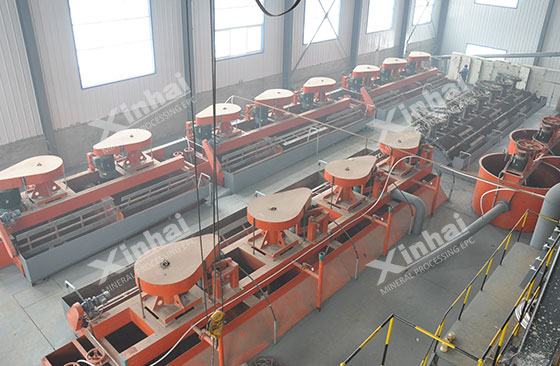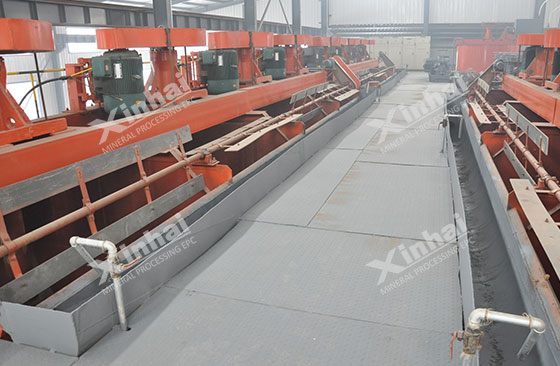
There are rich molybdenum mineral resources in China, accounting for about 25 percent of the world total molybdenum, and ranking second in the world. Speaking of molybdenum ore, molybdenite is the most industrial value. There are about 99% of the world's molybdenum production obtained from molybdenite. According to different sources, molybdenum production can be divided into original molybdenum, copper symbiosis and by-product molybdenum, and molybdenum recovered from abandoned molybdenum catalyst. The first two types account for most of molybdenum production. According to the existing form of molybdenum ore, molybdenum mineral processing technology can be divided into single molybdenum mineral processing technology and copper-molybdenum mineral processing technology.

For the single molybdenum ore, the most typical process is rough grinding rough separation- regrinding and re-separation. The reason for rough grinding and rough separation is its good floatability. Generally, the molybdenum grade of raw ore is very low (0.01~4%) in the single molybdenum, while the grade of molybdenum for smelting needs 45~47%, so the enrichment ratio is much high (over 400). This requires multiple separation operations (4 -10 times) in the whole process. In addition, low hardness and sliming will affect the quality of concentrate. Therefore, it is particularly necessary for the single molybdenum mineral processing technology to carry on rough grinding rough separation, which can select the coarse concentrate containing a large number of intergrowth.

Copper-molybdenum flotation process can adopt preferential flotation, partial bulk flotation and bulk flotation process. In production, partial bulk flotation and bulk flotation processes are often used in copper-molybdenum, which can separate copper-molybdenum mixed concentrate, then separate copper and molybdenum respectively. Generally, copper-molybdenum separation requires the reagent removal pretreatment of mixed concentrate, then conventional flotation, nitrogen-filled flotation, pulsating high magnetic separation and passivation technology can be used to separate copper and molybdenum. It is very difficult and complex to separate copper and molybdenum, so good inhibitors and collectors are beneficial to get good indexes. Therefore, it is very important for copper-molybdenum flotation process to study a new type of reagent.
At present, Xinhai has completed several molybdenum mineral processing projects in China, and also produced the related equipment for molybdenum mineral processing, such as ball mill, crusher, floatation machine, thickener and other auxiliary equipment.
To find out more about our products and solutions, please fill out the form below and one of our experts will get back to you shortly.